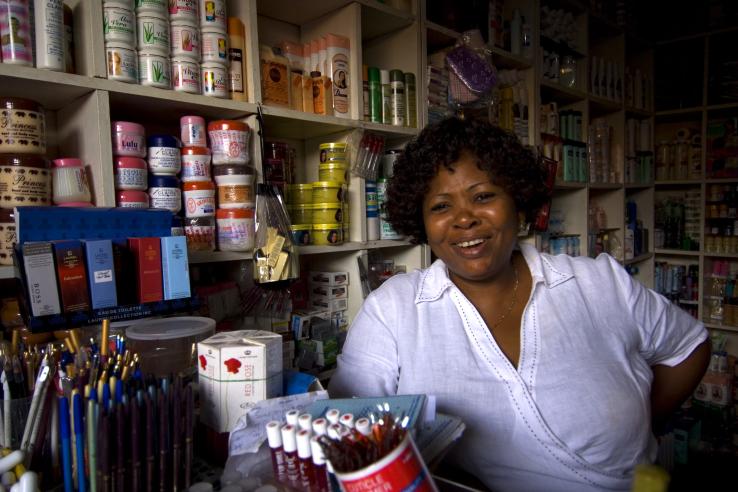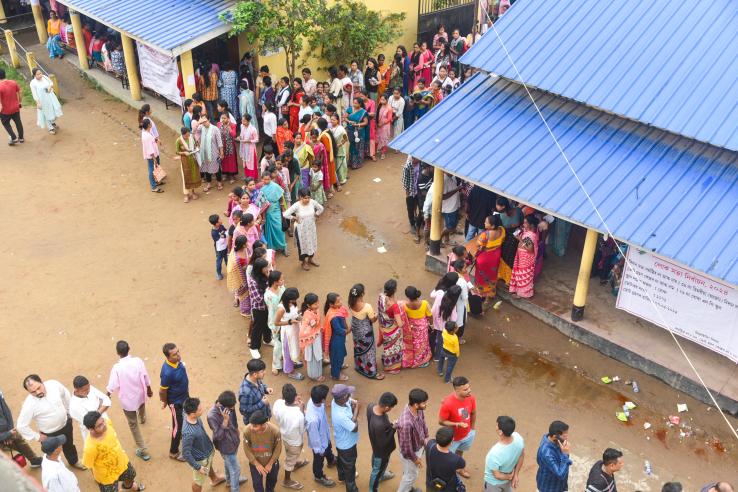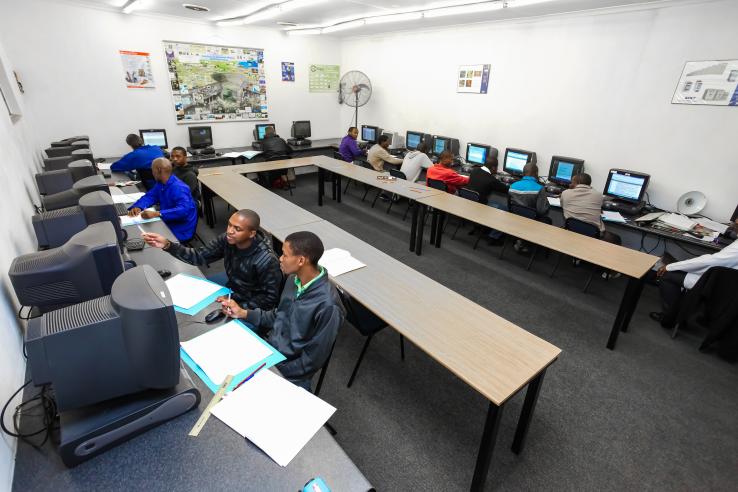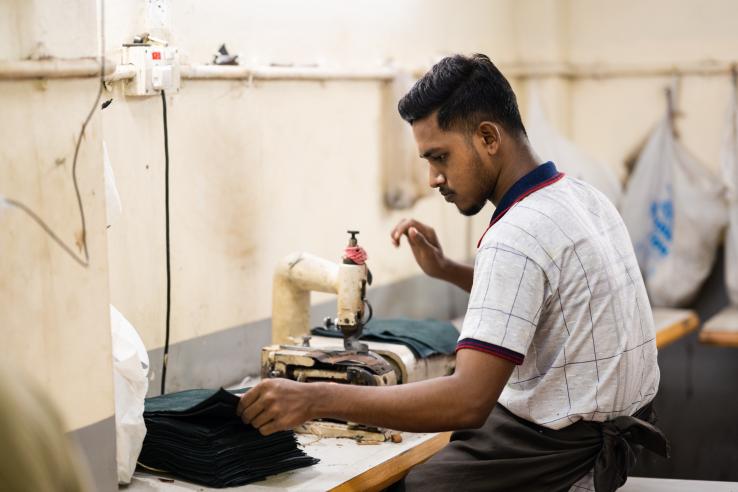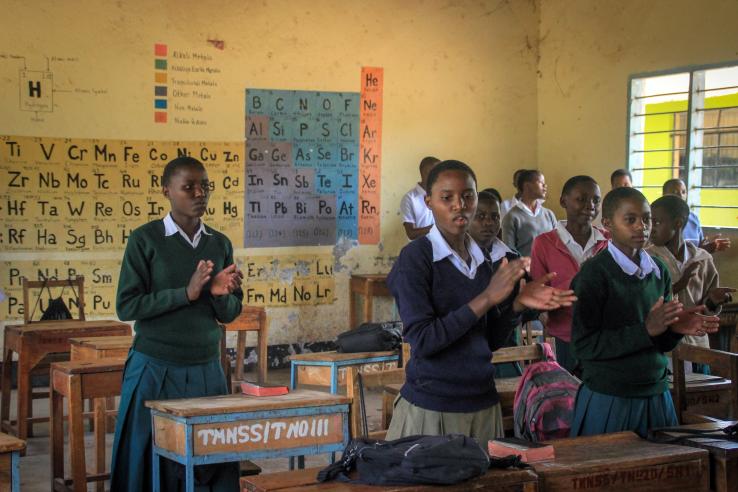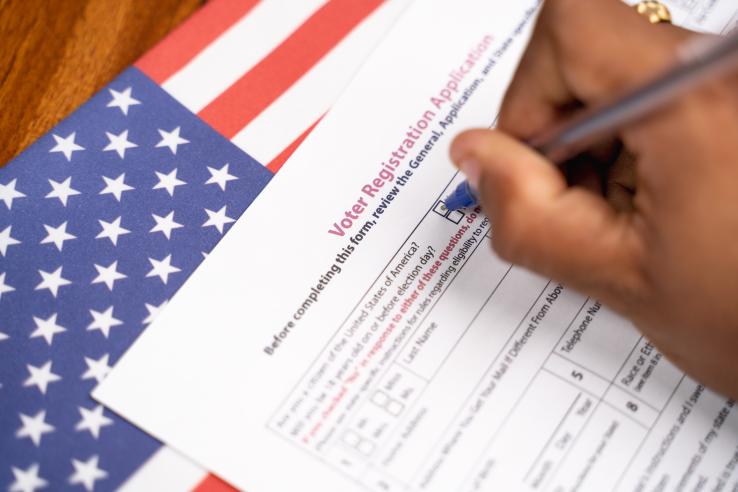Displaying 4636 - 4650 of 8489
Evaluation
Those self-employed in microenterprises, who often report low profits and own few assets, account for fifty percent of the labor force in low-income countries. Researchers are conducting a randomized evaluation to test the effect of relieving constraints to microenterprise relocation on business income in Kampala, Uganda.
Evaluation
Researchers tested the impact of a job search planning intervention on job search efficiency and employment among unemployed youth in South Africa. The planning intervention improved participants’ job search intensity and efficiency, leading to higher rates of employment.
Evaluation
Researchers conducted a business plan competition to test whether panel judges or questionnaires answered by firm owners could more accurately identify the fastest growing firms in Ghana. Both survey assessments and judging of business plans through panels selected firms with the potential for faster growth.
Evaluation
Researchers in France studied whether government-provided recruiting services would impact firms’ job postings and hiring by lowering recruiting costs. The recruiting services decreased firms’ hiring costs and increased firms’ job postings and hiring, including much sought-after permanent-contract hires.
Evaluation
Although 20 percent of the population in New Delhi, India live in slums and represent an important voter group for politicians, public service provision in slums remains inadequate. In an ongoing study, researchers evaluated whether providing information to government officials and slum dwellers can lead to higher accountability and improved service delivery.
Evaluation
Access to quality jobs is a pressing concern in sub-Saharan Africa. In Kenya, researchers partnered with the technology company Sama and Innovations for Poverty Action to conduct a randomized evaluation of Sama’s training and job referral programs.
Evaluation
Buyers often have limited information on service quality in low- and middle-income countries. In the absence of information, buyers may receive low quality services or may choose not to seek out service at all, limiting potential benefits for households. Researchers evaluated a program in Pakistan that provided farmers with information on veterinarians’ artificial insemination (AI) success rates and average prices. This led to more successful inseminations without a rise in AI prices.
Evaluation
Researchers collaborated with Uber in Egypt to assess the impacts of expanding access to its ride services through price on the demand for ride-hailing and overall consumer mobility. Lowering the price of ride-hailing services increased people’s use of Uber and overall consumer mobility.
Evaluation
Researchers are working with small- and medium-sized enterprises in the leather goods and footwear manufacturing sector in Bangladesh to understand the role of information in the adoption of energy-efficient motors for stitching machines, as well as firms’ perception of and willingness to pay for the new technology. This study in ongoing and results are forthcoming.
Evaluation
Researchers are conducting a randomized evaluation to test the impact of offering stipends for exit exam preparatory courses on students’ exam completion and subsequent education, labor market, and marital outcomes.
Evaluation
Researchers will conduct a randomized evaluation to test the impact of different types of notifications on rates of failure to appear in traffic and criminal misdemeanor courts.
Evaluation
In this randomized evaluation, researchers evaluated the impact of a medical debt relief program (that buys and relieves a portion of individuals’ medical debt) on measures of mental and physical health, health care utilization, and financial well-being—including financial distress, credit score, debt balances, and repayment behavior. Individuals randomized to receive debt relief did not see improvements in the health and financial outcomes measured compared to those in the comparison group.
Evaluation
Researchers designed a free online tutoring program delivered by volunteer university students to test whether it could mitigate the effects of school closures during the COVID-19 outbreak. They found that the program had a positive outcome on students' learning outcomes, socio-emotional skills, and psychological well-being.
Evaluation
Researchers evaluated the impact of targeted mailings encouraging people with criminal records to register to vote on voting behavior in North Carolina. Mailers increased both voter registration and general election turnout among people with past criminal convictions.


